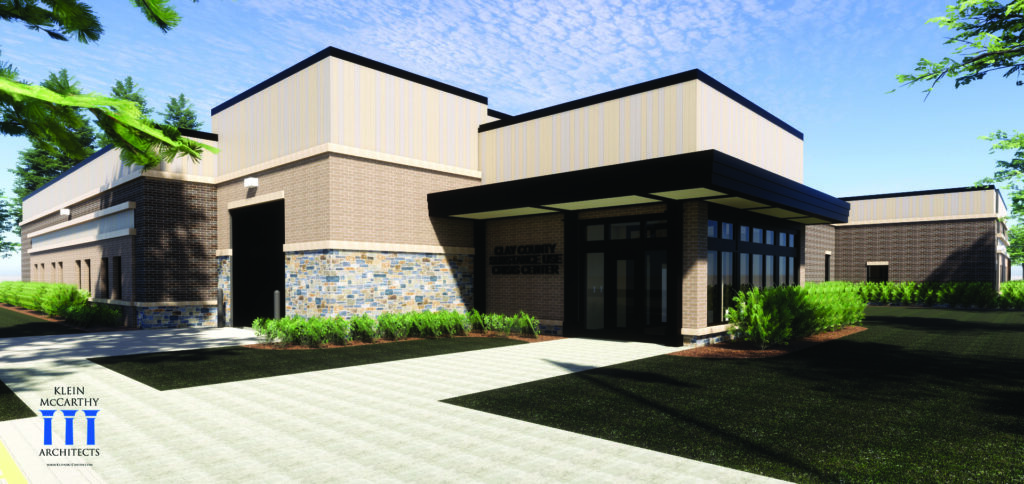
Design work is nearly complete for the new Clay County Substance Abuse Crisis Facility, to be located west of the new Resource Recovery Center on 15th Avenue North. Construction bidding will begin in late February. (Rendering/Klein McCarthy Architects.)
clay county commission
Nancy Edmonds Hanson
The new Clay County Substance Abuse Crisis Facility is taking shape and drawing closer to issuing bids, Clay County commissioners learned Tuesday.
The facility — informally known as the detoxification center — will be constructed on 15th Avenue North directly west of the new Resource Recover Center. The $13.5 million facility had been discussed as a replacement for the aging 16-bed receiving center in the county’s Family Service Center at 715 11th St. N. since at least 2018, but funding proved an obstacle. That problem was partially solved one year ago when the county received a $5 million Minnesota Department of Human Services grant to design, construct, furnish and equip the center.
Ryan Weber of Klein McCarthy Architecture of Minneapolis presented a “nearly complete” overview of the new building at the commission’s regular meeting, including a digital walk-through of the 32-bed facility. It will be located directly west of the new Resource Recovery Center on 15th Avenue North. Dan Kleist of Gehrtz Construction, the firm selected to manage the project, was also on hand.
The detoxification center, which will accommodate men and women withdrawing from both alcohol and drug use, will include seven housing pods, each with residential accommodations surrounding a common area described as a living room. All of the 7- by 10-foot private rooms have windows looking out onto the grounds, a requirement of B3 guidelines required by the state of Minnesota on all projects that receive general obligation bond funding. Those requirements cover siting, water, energy, indoor environment, materials and waste disposal.
Architect Weber noted that variances are being requested on several of the B3 points. One is the need for natural light throughout the building. Two nursing stations will be surrounded by the housing pods, cutting off direct access to sunlight; other meeting rooms and offices, too, will lack daylight access. The problem with the nursing areas is being met with skylights, he said.
The average stay in the detox center, director Troy Amundsen told commissioners, is two days, but there is no limit. Detoxification can take up to 72 hours. Withdrawal management, however, may require longer stays.
According to Weber, final details are expected to be wrapped up over the next six weeks. He predicted the project will be ready for bids to be issued by the end of February or early March.


